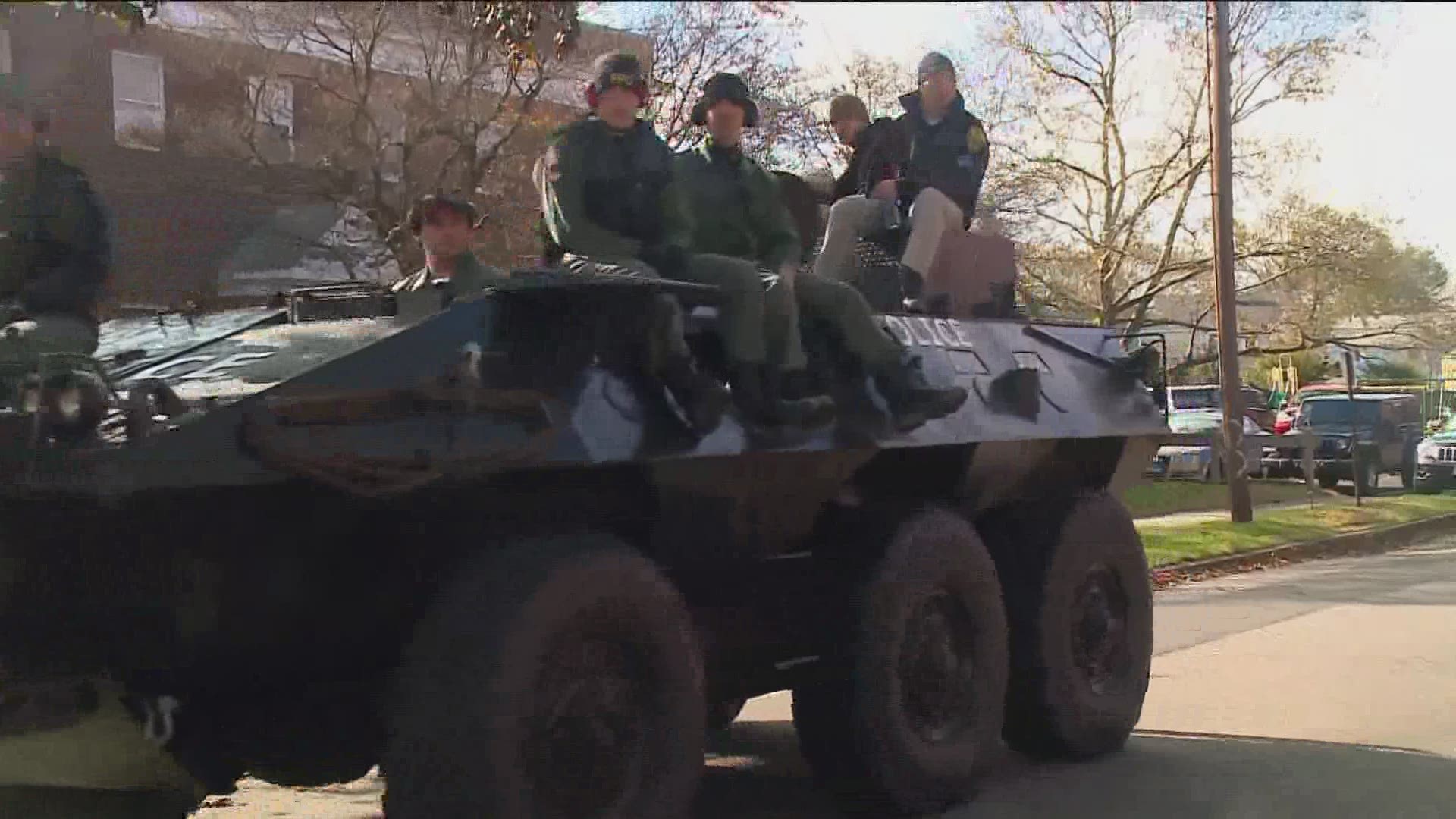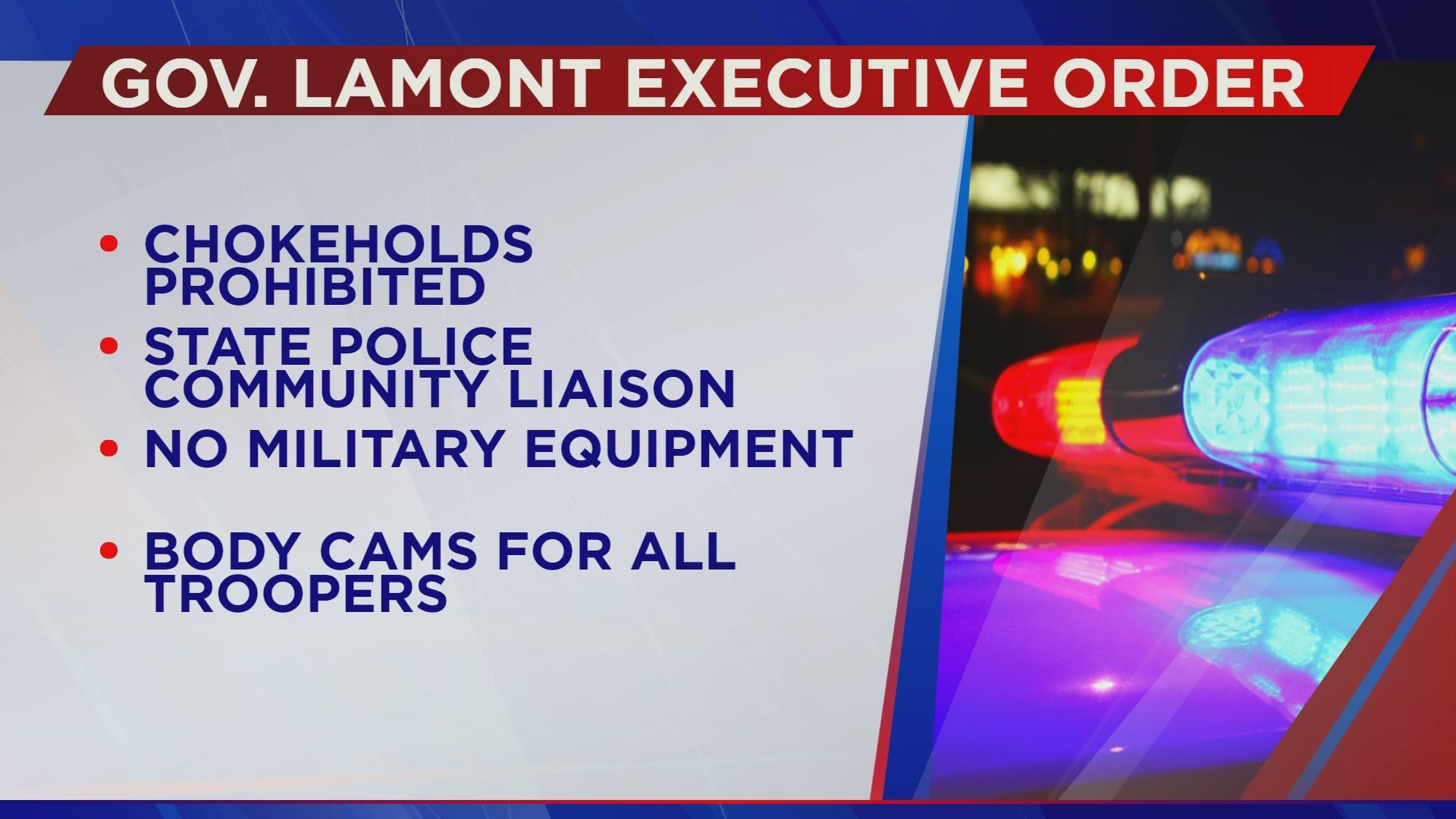Gov. Ned Lamont has signed an executive order that lays the groundwork for future police reform legislation, but some agencies are questioning the details of the order.
Citing the Black Lives Matter movement, few people are questioning the sentiment of Gov. Lamont’s newest executive order. But some departments are questioning the implications of it.
From the backyard of the residence, Gov. Ned Lamont announced he’s using his emergency powers to mandate state police reform. Here’s what the executive order does. It prohibits chokeholds. Trooper 1st Class Christina Jeltema of the Connecticut State Police said, “We don’t practice chokeholds, we don’t train for chokeholds. We do train in deescalation.“
It implements a see something, do something policy — requiring troopers to intervene in excessive use of force. “Part of our training in one of our scenarios is a trooper or recruit intervening when someone might be using excessive force. So it’s stuff that we are already doing,” said Trooper Jeltema.
It also mandates each troop train a community liason officer to build relationships. “We want to ensure that people have a place to go to to express their concerns. And that team effort of building a community.“
And it requires all use of force incidents to be put on a publicly accessible data portal with specific information from the type of weapon used to the gender and ethnic breakdown of the suspect. “Everything that the Governor was discussing in his briefing yesterday is stuff that we already have on our portal,” said the state police.
The order also bars state police from participating in what’s called the 1033 program, through which police can acquire surplus or unused military equipment for free from the federal government. Local departments were excluded from the executive order but the CT Police Chief’s Association has voluntarily agreed to stop taking in military equipment for 90 days.
Still, some local departments told FOX61 this equipment has practical use. Deputy Chief Colin McAllister of the Naugatuck Police Department said, “The items we have received would normally be purchased through our budgetary process but we are able to obtain them through this program which ultimately saves the taxpayers money.“ At the Naugatuck Police Department they recently acquired a thermal sight from the military to locate lost hikers. “We’ve got a need for these in situations where we’ve had lost people or children. An Alzheimer’s patient may have wandered into the woods,” said McAllister.
Many years ago the Suffield Police, a town with a lot of undeveloped land, acquired a humvee as an off road search and rescue vehicle. Chief Richard Brown said, “There are a number of pieces of equipment that the department could use that are specific for helping our town residents and I’m concerned that if the restrictions are overreaching it may limit the ability of law enforcement to assist the citizens.”
Dozens of departments across Connecticut have received everything from military rifles to office supplies to clothing. The executive order applies to state police only. Any reforms for municipal departments will have to be legislated through a special session.
The executive order also requires all state troopers to have body cameras and all patrol cars to be equipped with dash cams by 2021. Police in Suffield have neither. Chief Brown said they are all for transparency and accountability but they simply don’t have the money for it. He says without help from the state or federal government the expense would likely result in taxes going up.


